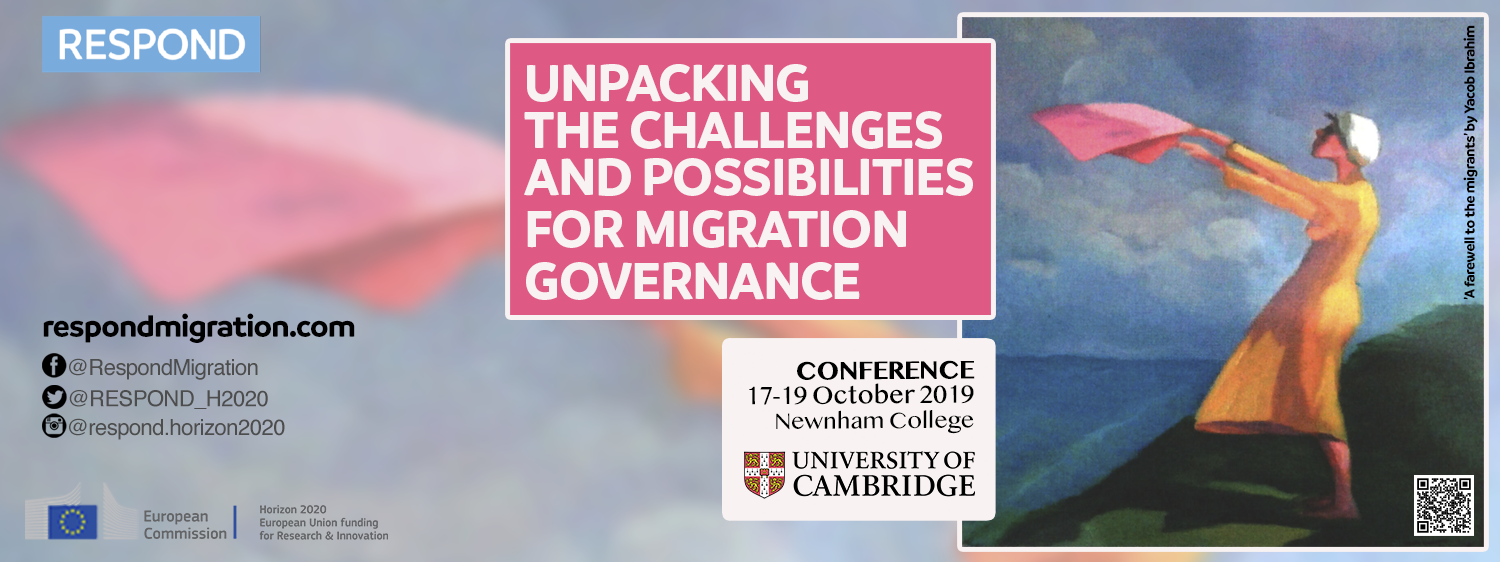
Submitted by Di Kennedy on Mon, 20/01/2020 - 12:02
Blog post Excerpt from Jonas Begemann, Leiden University
From the 17th to the 19th of October the RESPOND project – represented by the conference’s host and organisers Naures Atto (University of Cambridge), Susan Rottman (Özyegin University), Veronica Federico (University of Florence) and Soner Barthoma (Uppsala University) – welcomed 175 participants at the beautiful Newnham College in Cambridge.
In the past years, the RESPOND teams, spread all over Europe, published a vast number of research reports and papers within the project’s work packages. The conference in October now was a unique chance to bring together not only researchers from RESPOND but generally scholars engaged with migration studies from different academic backgrounds in a both highly focused and (from the perspective of a “conference-newbie”) comfortably open and relaxed atmosphere.
The project aims at – as the conference’s title nicely summarised – “Unpacking the Challenges and Possibilities for Migration Governance” (with particular interest in the so-called “refugee crisis” since 2015). In this spirit, ten panels (with 24 sessions) were structured around RESPOND’s work packages, among other topics dealing with border management, international refugee protection, “welcoming culture”, labour market integration, role of gender in integration processes, aspects of mental health, Europeanisation or local-level-experiences.
The participants had the chance to listen to 114 presentations – often enough, it was a tough choice between interesting yet parallel sessions! With the informed audience being so highly engaged in topics and discussions, all the time for discussion was often not enough to shed light on the many interesting aspects of the papers: talks on mafia influence on refugee centres in Italy, international cooperation, fieldwork in the borderlands of Europe and the middle-East or mental health aspects had to be postponed to the coffee breaks. The broad mix of disciplines, fields and perspectives reached from distinctly individual bottom-up perspectives (e.g. the cooperation between a scholar and a Syrian refugee, leading to a joint paper) via work from political scientists, anthropologists and philosophers to macro-level legal analyses. This was a highly stimulating experience that highlighted new points of view for surely every participant. Being high on the political agenda of policy-makers on European and national level, it came as no surprise that many presentations dealt with various aspects and consequences of border management or externalisation. This included coastguard cooperation in the Mediterranean, illegal pushbacks at the Hungarian border and cooperation between the EU or member-states and, for example, North-African states. Other presentations dealt with the EU-Turkey-deal, approaching it from different academic angles. In yet other panels, scholars presented their studies on the importance of religion for refugees or the best interest of migrant children in Northern Europe, Labour Market integration possibilities and problems or local-level specific studies.
Full blog post here....
